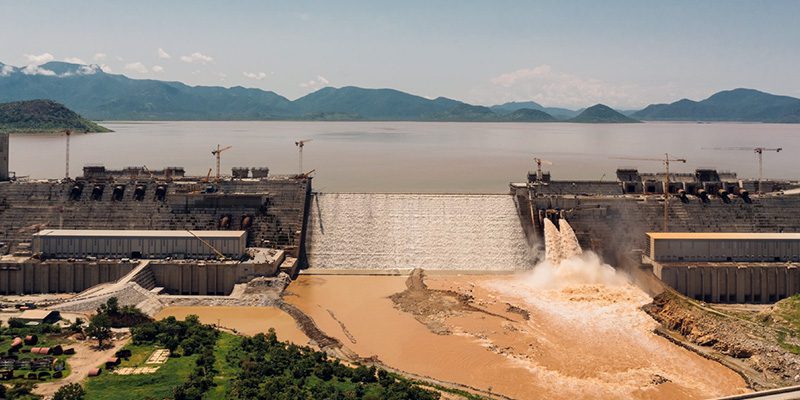Mekelle፡Telaviv, Nairobi, Pretoria, London,April 12፡2025 (Tigray Herald)
TIGRAI WEEKLY SNAP
Written by Teshome Beyene
This week began with a political tremor: the official resignation of Getachew Reda from the presidency of the Tigrai region. It wasn’t entirely unexpected, but it hit hard. Regret, praise, and uncertainty flooded social media and cafés alike. Even the appointment of his successor, General Tadesse Worede, couldn’t dull the emotional impact of Getachew’s departure.
For over a month, rumors swirled: Was Getachew coming back? Was it just a break? But his recent interviews with Professor Getachew Asefa—marked by blunt revelations of military pressure and alleged threats to his life—signaled the end. So when the announcement came, it wasn’t a shock—but it did stir something deeper. The public reaction, stretching across Tigrai and beyond, was a mix of drama and reflection.
General Tadesse’s appointment was nearly as anticipated as Getachew’s exit. Earlier, Prime Minister Abiy Ahmed had invited the public to submit nominations for the presidency via email. That effort quietly disappeared. In the end, Abiy handpicked Tadesse. Whether the initial outreach was genuine or a staged distraction remains unclear—but looking back, it feels more like diversion than democracy.
Reactions to the appointment of General Tadese are mixed. Some see it as the military tightening its hold on civilian leadership. Others view it as the TPLF preserving control. Still others believe only someone with military credentials can navigate Tigrai’s current crisis.
What caught many eyes was the brief, 8-point “terms of reference” Tadesse signed. It referenced the Pretoria Agreement—but selectively. It promised the return of IDPs, but made no mention of occupied territories. DDR was included; transitional justice wasn’t. What Tadesse makes of this sparse mandate remains to be seen.
His inaugural address, summarized by the Voice of Woyane, struck a broader tone—pledging cabinet reshuffles, institutional reform, and a focus on governance and reconstruction.
Tadesse’s first decisive move came quickly. His administration issued a formal protest to the federal government, rejecting the Amhara Regional Government’s public claim over Humera and Wolkait—triggered by reports of a road project in Western Tigrai. The letter called the claim unconstitutional and a clear breach of the Pretoria Agreement. It was a rare moment of clarity and assertiveness—one that may resonate with a public weary of silence on core issues.
The TPLF’s reaction to Tadesse’s appointment is murky. A ceremonial banquet, opened by a Martyrs’ Day ballad, signaled endorsement. Yet their absence from the swearing-in raised eyebrows. Was it to avoid an awkward moment with Getachew—or quiet dissent?
At the same time, the TPLF’s public statement on the Pretoria Agreement’s implementation was clear and direct.
For now, the presidential vacuum is filled. Tigrians, by nature or necessity, extend the benefit of the doubt. Whether Tadesse earns it remains to be seen.
Then came another twist: Getachew was named Minister for East African Affairs—a federal advisory post. Just three years ago, such an appointment would’ve been unthinkable. But politics often shifts between enmity and alliance. Some say it gives Tigrai a voice at the center. Others see it as strategic sidelining. Either way, Abiy gains by bringing a popular and savvy figure under his wing. For TPLF stalwarts, though, Getachew remains a ghost haunting them from Addis.
Another Tigrean diplomat was also appointed to a senior post at the Ministry of Foreign Affairs. Symbolically important—but far from a meaningful boost in representation.
Two more developments rounded out the week—one somber, one striking. The death of General Alfatah, a longtime Sudanese ally of Tigrai and the TPLF, was met with heartfelt tributes online. His support in the 1990s is still remembered. Meanwhile, Colonel Tewelde Gebretensae (Embebe) of the TDF and part of the Pretoria negotiating team, voiced strong reservations about the January 23, 2025, decision by Tigrai’s top brass. He said he hadn’t backed (even though not on record), the army’s move to recognize the Debretsion faction as the sole legitimate leadership of the TPLF.
As we all know, the January 23 incident decisively altered Tigrai’s political trajectory—contributing to Getachew’s fall, and possibly General Tsadikan’s as well. If more voices break silence, it could open space for a healthier political culture in Tigrai.
Let’s hope that’s the direction we’re heading. Until next week.




